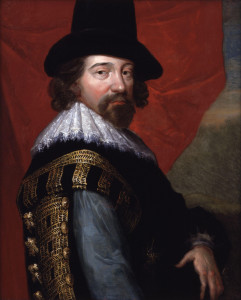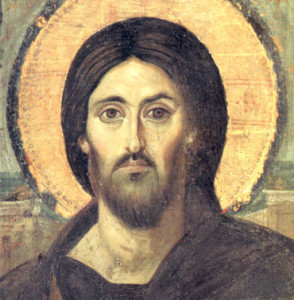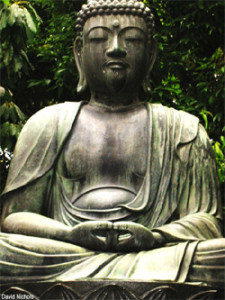My Spiritual Journey
“If a man will begin with certainties, he shall end in doubts. But if he will be content with doubts, he shall end in certainties,”. Francis Bacon, Advancement in Learning, 1605.
Prior to the seventeenth century the Church, the Bible, and the rule of the Nobles were the certainties all Europe relied on. The social structure was rigid, warfare was nearly constant, and the Black Death had killed much of the population. Then, things began to change. Religious inquiry began, governments became more centralized, cities and trade began to flourish, and people started asking questions.
Francis Bacon’s quote reflects the shift in thinking that led to what many now take for granted: critical thinking. The shift will never be complete, for millions continue to rely on what they take as revealed truth. Critical thinking requires another condition that we also take for granted: liberty.
The freedom to choose, to say yes or no, to do as one wishes, is a rare thing. I am lucky my family and my country encouraged independent thinking because I am a seeker. If anyone tried to fit me into a fixed system they faced rebellion.
I was raised a drop him off at Sunday School Methodist. It just didn’t take. Basic Christianity got planted, but the dry services never resonated with me. The only part of the services I liked was the Doxology. Those felt Jesus’ and Josephs in Sunday School with the cute little sheep and donkeys on a felt board just seemed silly.
I was confirmed as a Methodist in high school, but just because the cool girls were Methodists. I didn’t know what to believe, but I kept looking. I looked into Mormonism, but there is where I ran up against a closed system. I just could not conform to a rigid system, even if one of the prettiest girls in school was a Mormon.
I needed solid, rational, verifiable truth from the scientific method or a powerful experience of truth. I was finding neither. Blind faith or the statements of some spiritual minister or guru did not work for me.
I read, talked, searched. I looked into Zen, but couldn’t meditate. I got pretty serious about existentialism because I was also depressed after my mother’s death. Camus is depressing. I looked into right-wing politics and ran into another closed system. So, I became an annoying agnostic. I challenged everything.
Then came the late 1960’s and drugs. Marijuana taught me how to feel. LSD stripped my ego away so I could see and feel the vast, wondrous, interconnected universe. The problem with the drugs is that you come down. I got a glimpse and some of the feeling of the One, but not enough. Drugs opened the door, but were not the answer.
Then, in the early 1980’s,I was having a dark night of the soul from a divorce and fell into the clutches of a Pentecostal deacon. I prayed the prayer, asking Jesus into my life and it happened. I felt like I was wrapped in love. It was a tangible, physical and emotional feeling. I was a Christian instantly in a basement apartment in LaSalle, Colorado. Two weeks later I was a speaking in tongues Pentecostal. What a time. I had experience after physical experience of joy, love, and deep peace. I felt delivered from many of my old hang ups and was a new person in Jesus Christ.
I put my rational skepticism on hold. I had found spiritual experience. After a year I started having problems with the fundamentalism. Pentecostals are a bit better, but they are still fundamentalists, and took the evangelical ideology and the Bible literally. The currently popular fascination with the end times and the book of Revelation just did not ring true, and I studied it carefully. The dire prophesies in Revelation are about Rome, not today. The Romans destroyed the temple in Jerusalem in 79 AD and the Jewish diaspora began in earnest. No wonder John of Patmos wrote an apocalyptic book about the oppressors.
The profound spiritual experiences began to fade, although I still pray in tongues. I also moved to Colorado Springs, fell in love (More physical and emotional experiences, and just as meaningful.) I ended up at a Charismatic Episcopal church that combined the wonderful ancient liturgy with the gifts of the Spirit. The Episcopal Charismatics are part of the evangelical wing of the church and I ran into the same problem. I ended up an Episcopalian in a mainstream liberal parish.
About this time I also found I can meditate, probably a gift of the Spirit. I looked into Zen Buddhism. Sitting Zazen, meditating, was wonderful. All the rules coming from a rigid Japanese culture did not work. I could not walk into the Zendo, the meditation room, without doing something wrong and getting caught. Now I use Insight Meditation, part of the Theravadan tradition of Buddhism, but here it does not carry all the cultural baggage the Zen folks continue. My mantra, however, is the Jesus Prayer, an ancient orthodox prayer. “Lord Jesus Christ, Son of God, have mercy on me, a sinner.” Try about 3000 repetitions daily. Read The Way of a Pilgrim, written by a Russian Orthodox mendicant.
I also explored Christian Contemplative prayer. It is an ancient tradition, starting with the Desert Fathers in Egypt in about the third century. Today, Thomas Keating, a Trappist from the monastery in Snowmass CO, and Thomas Merton are the best known from their writings. There is a large network of contemplatives, mostly Roman Catholic, but from many other denominations as well.
Today, I guess you can call me a Buddhapalian. I don’t often attend services, but I meditate daily, pray, and do longer meditations almost weekly. This fits my pattern. I have big spiritual events, sometimes lasting years, and quiet times lasting years. I am happy with that.
I have two bits of advice. Don’t trust anyone who says they know the answers except Jesus and the Buddha. When you pray, don’t ask for specifics, ask for what is best for the situation. As for what it all means, it’s a mystery. I remain a skeptic.


